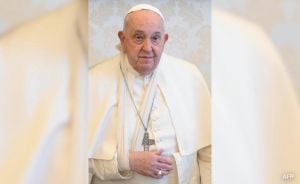Alexey Ulyukaev, the former Russian Minister of Economic Development, has taken the legal step of petitioning the Nikuininsky Court in Moscow to remove his criminal conviction stemming from his 2017 bribery case. This significant development was reported on February 24, 2024, when TASS revealed new details about Ulyukaev's status post-incarceration.
Ulyukaev was originally arrested on November 14, 2016, during what was characterized as the shocking transfer of $2 million from the leaders of Rosneft, Russia's largest oil company. Following his conviction, the former minister received an eight-year prison sentence, coupled with a hefty fine of 130 million rubles. His conviction made headlines across the nation, setting a precedent for the handling of high-ranking government officials involved in corruption.
After serving time, Ulyukaev was released early on May 12, 2022, due to parole. Since his return to civilian life, he has been vocal about his turnaround, expressing feelings of renewed honesty and enjoyment of life. Ulyukaev stated earlier this month, "I finally feel like an honest person, and I’m beginning to enjoy life again," indicating significant personal transformation since his early release.
The upcoming court date for Ulyukaev's petition is set for March 10, 2024. According to RIA Novosti, for the court to grant his request, Ulyukaev must demonstrate he has rectified the damages incurred, and he must also exhibit good behavior throughout his parole period. If successful, lifting the conviction would not only restore his reputation but potentially open doors for future employment unmindful of his past legal difficulties.
Legal experts have noted the significance of such petitions, especially for individuals previously involved in high-profile corruption cases. The community watches closely, aware of the broader implications Ulyukaev's case may have on public trust and governance within Russia. Many speculate whether the court will adopt a lenient approach toward him, considering the socio-political environment surrounding corruption and governance.
Ulyukaev's initial conviction was part of high-stakes government accountability efforts, igniting widespread discourse about corruption within Russian politics. His case became emblematic of the conflict between governmental accountability and the complicated realities of political maneuvering.
It is noteworthy to mention how the Russian legal system treats cases involving influential figures. Historical patterns reveal varied outcomes based on the public image and political weight of individuals like Ulyukaev. These dynamics point to both the challenges and potential shifts within Russia’s judicial practices as they adapt to public pressures and the fight against corruption.
With the date for the hearing approaching, the court’s decision will be pivotal, not just for Ulyukaev personally but also for the Russian public's perception of justice being served. Should his petition be successful, it could signify movements toward rehabilitating political figures who have served their sentences without incidents.
Ulyukaev's path continues to weave through the fabric of Russia's complex political and legal landscapes, and his upcoming court date promises to be consequential. The news remains closely monitored, with Ulyukaev's supporters and critics alike awaiting the potential reshaping of his legal legacy.
Overall, Ulyukaev’s petition adds another layer to the discussions surrounding corruption and accountability at the highest levels of government. It raises pressing questions of justice, public service, and the capacity for personal redemption after significant legal transgressions. The outcome of this petition could redefine Ulyukaev's future and set notable precedents for others who have faced similar fates.



